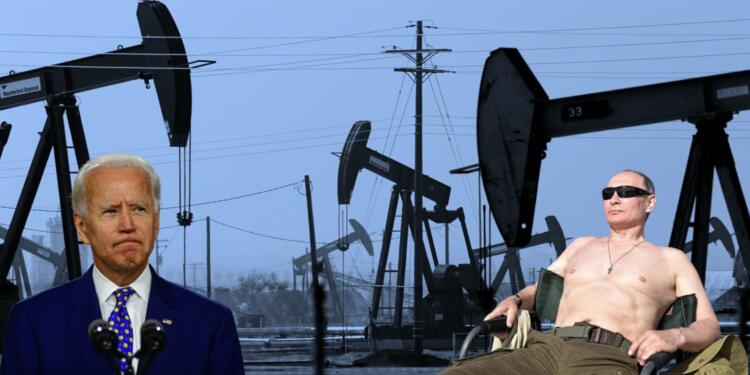The US and the rest of the Western world seem to have sanctioned every possible Russian product entering the markets except Russian oil and natural gas due to Europe’s dependence on these supplies.
Read more: The haughty Arabs get a taste of their own medicine
Yet, a few Western buyers imposed voluntary bans on Russian oil. Again, they were hoping that this will destroy Russia’s oil and natural gas business. Yet, this has actually made Russia richer.
Russia makes windfall gains
In the first 100 days of the war, Russia’s revenues from fossil fuels, that is, oil, natural gas and coal have broken all records. The revenues are being driven by an artificial surge in prices and increasing export volumes.
As per a study by the Center for Research on Energy and Clean Air, Moscow is said to have earned a record 93 billion euros through sale of fossil fuels over this period. Two-thirds of this revenue reportedly came from oil exports.
Lauri Myllyvirta, an analyst at the Center said, “The current rate of revenue is unprecedented, because prices are unprecedented, and export volumes are close to their highest levels on record.”
Who is buying Russian oil?
First of all, let us find out who has stopped buying Russian oil. Australia, Britain, Canada and the United States have imposed outright bans on Russian oil supplies. However, these are bans and not sanctions. So, these countries have stopped buying Russia’s oil voluntarily without any implications for any third party that wants to buy such oil.
The US had carved out an exception for Russian oil and natural gas given EU’s dependence on these fossil fuels. Within Europe, some buyers are avoiding Russian oil due to fear of reputational damage or possible legal consequences.
Yet, the 27 EU members haven’t completely stopped buying Russian oil. Germany has opposed any such move due to fears of recession and Hungary too is opposing any bans. So, countries in Europe are buying Russian oil even at elevated global oil prices. This is a windfall of sorts for Russia which is making higher revenue by selling broadly the same amount of oil to Europe.
Next up are the Asian markets like India and China. Russia is offering steep discounts and low prices to these two huge economies. So, these two countries are purchasing more Russian oil than ever before.
Consider this, in the whole of 2021, India purchased some 16 million barrels of Russian oil. This formed a very share of India’s total oil imports as India traditionally sources most of its energy from the Gulf and the US. However, since late February, India is estimated to have bought at least 13 million barrels of Russian crude oil. Increasing oil prices and limited options have promoted India to move towards discounted Russian oil.
Read more: TFI’s prediction comes true, India close to clinching oil deal with Russia
China is a traditional purchaser of Russian oil. However, it is purchasing even more oil than it used to purchase earlier. China purchased 800,000 BPD of Russian oil in 2021. However, in May it is estimated to have purchased a near-record 1.1 million barrels of oil per day.
Who is gaining with these heightened purchases? Russia, of course.
Understanding Russian Oilonomics (Russia’s Oil Economics)
At the outset, it may seem that Russia is offloading its oil at heavy discounts. It might seem that due to a shortage of buyers, Russia is selling its oil at a loss. However, this is where Russian Oilonomics gets rather complicated.
In reality, oil prices are high not because of any real rise in oil extraction costs but due to a shortage of options. Four large economies have said that they won’t purchase any oil. So, they are putting more pressure on a limited oil market and artificially enhancing oil prices.
On top of it, Iranian and Venezuelan oil has been squeezed out of the markets already and there are very limited options left to source affordable oil. In between the war, the Biden administration too said that it was not ruling out export curbs to ease pump prices. Such announcements lead to speculation in the crude oil market and further elevated prices.
Russia is already getting a very good price for its oil from the seller’s perspective and it will make huge profits even after offering steep discounts to India and China. For Asian economies, discounted Russian oil is actually a great deal given the paucity of other options and a comparatively more affordable price.
India and China are purchasing sufficient oil to compensate for what Russia is losing out in Britain, Australia, the US and Canada. Also, Russia is getting a much better price for its product due to curbs imposed by the West in the first place. Russian oilonomics thus shows that Western curbs are actually making Russia richer.

























